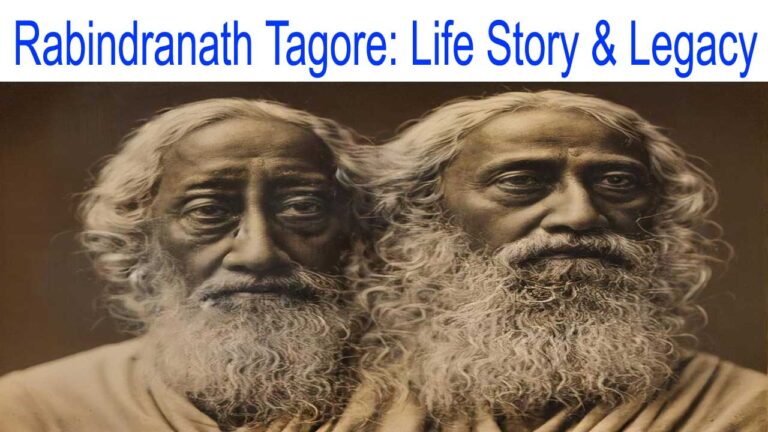Explore the life of Rabindranath Tagore, his early life, education, literary career, philosophical thoughts, and his contributions to society in this detailed biography.
Early Life and Family Background
Birth and Family Introduction
Rabindranath Tagore was born on May 7, 1861, in Kolkata, India. He was the youngest of thirteen children in the Tagore family. His father, Debendranath Tagore, was a prominent leader of the Brahmo Samaj, and his mother, Sharada Devi, was a homemaker.
📈 Promote your Business
🕒 1st Month FREE + Lifetime Plan Available!
The cultural environment of the Tagore family and the influence of his parents played a significant role in shaping Tagore’s creative development during his childhood.
Childhood and Education
Tagore received his early education through private tutors at home. His intellectual curiosity and creative talent were evident from a young age. At the age of eight, he began writing poetry and short stories, laying the foundation for his future literary career. He attended various schools in Kolkata and later enrolled at the Paddington School in England in 1877.
Literary Career and Achievements
Early Works and Recognition
Tagore’s literary career began with the publication of his first poetry collection “Kabi-Kahini” (Poet’s Story). His innovative writing style and unique voice quickly gained attention in the literary world. In 1913, he was awarded the Nobel Prize in Literature for his collection of poems “Gitanjali” (Song Offerings), making him the first non-European Nobel Laureate.
Philosophical Thoughts and Themes
Tagore’s works explore universal themes such as humanity, spirituality, and nature. His philosophical ideas reflect a deep connection to Indian culture and a progressive outlook towards modernity. His poetry, novels, and essays often delve into the harmony between the individual and the universe.
Contributions to Education and Social Reform
Establishment of Visva-Bharati University
In 1921, Tagore founded Visva-Bharati University in Santiniketan with the aim of promoting cultural and intellectual exchange. The university emphasized a holistic approach to education, combining traditional Indian values with modern scientific knowledge.
Social and Political Activism
Tagore was also active in social and political reform. He supported Indian independence and criticized British colonial policies. His writings often focus on social issues such as poverty, inequality, and the need for reform in Indian society.
Personal Life and Legacy
Family and Marital Life
In 1883, Tagore married Mrinalini Devi, with whom he had five children. His family life was a mix of joy and tragedy, with the deaths of his wife and children having a profound impact on him. Despite these personal challenges, he continued to produce a vast body of literary work.
Death and Enduring Influence
Rabindranath Tagore passed away on August 7, 1941. His legacy endures through his substantial literary contributions, his role in Indian education, and his impact on modern thought. Tagore’s works continue to inspire readers around the world and hold a timeless place in the literary canon.

Your comment will appear immediately after submission.